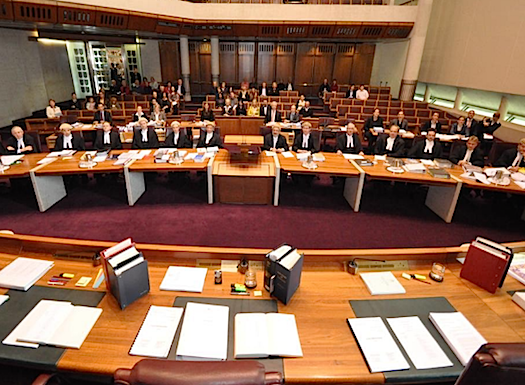Today FM and the ACMA appeared in the High Court today over the continuing issue of the ACMA’s report on the nurse prank.
Lawyers for the broadcaster and the regulator spent the day in Canberra presenting their arguments.
Today FM maintains the ACMA does not have the jurisdiction to make adverse findings against it in advance of any criminal proceedings, while the ACMA maintains it does have that right.
In March this year, the federal court upheld Today’s argument as part of a legal battle aimed at surpressing the ACMA’s investigation report on the case. The ACMA investigation found that Today had breached NSW surveillance laws, but Today argued that the broadcast regulator did not have the right to determine a matter of criminal guilt.
Today FM won that first round, but the ACMA appealed and this is the next step in that appeal.
It is unusual for such a matter to go before the high court, but in this case there are some wider principles at stake.
The Attorney General has intervened, fearing that if the ACMA’s power in this matter is overturned it will have knock-on effects to other government agencies. The argument is that a government agency should have the power to take an action on matters in its own jurisdiction, whether or not there are criminal issues involved. If the ACMA was prevented from using its regulatory powers in this matter, the government argues that the same thing could happen to other agencies – for example if a person pulls a knife on a policeman and the policeman arrests them, it could be argued that the policeman had pre-empted criminal proceedings and, using the ACMA precedent, would not have the right to exercise ‘executive powers.’
The broadcaster’s lawyers are less concerned with the wider principles, but rather with the station’s own situation. In Today FM’s application to the court, the broadcaster argued that “the germane provisions of the BSA and the ACMA Act do not authorise the Authority to make findings that a licensee has committed a criminal offence.”
In further argument, the ACMA contends that “if clause 8(1)(g) of the BSA empowers the Authority to make findings that a licensee has committed a criminal offence, that provision is invalid to that extent, because to that extent, the provisions provide for an exercise of judicial power contrary to Ch III of the Constitution, in that the power is exercised by the Authority, which is not a Court established pursuant to s71, and constituted in accordance with s 72, of the Constitution.”
Today FM does not consider that the issue identified by the Attorney General is a discrete issue. “It instead arises only as a contextual matter that supports TodayFM’s proposed construction of clause 8(1)(g),” contends Today.
Commercial Radio Australia has also made a submission in support of Today FM, “because important legal interests of CRA’s members are likely to be substantially affected by the Court’s decision.”
CRA’s submission argues that “the legislative scheme of the BSA… the underlying legislative purpose and the system established for industry-based codes to become the primary means for regulating program content, suggest that the Authority is not authorised to act in the manner it now proposes.”
The court has adjourned to consider the matter.

